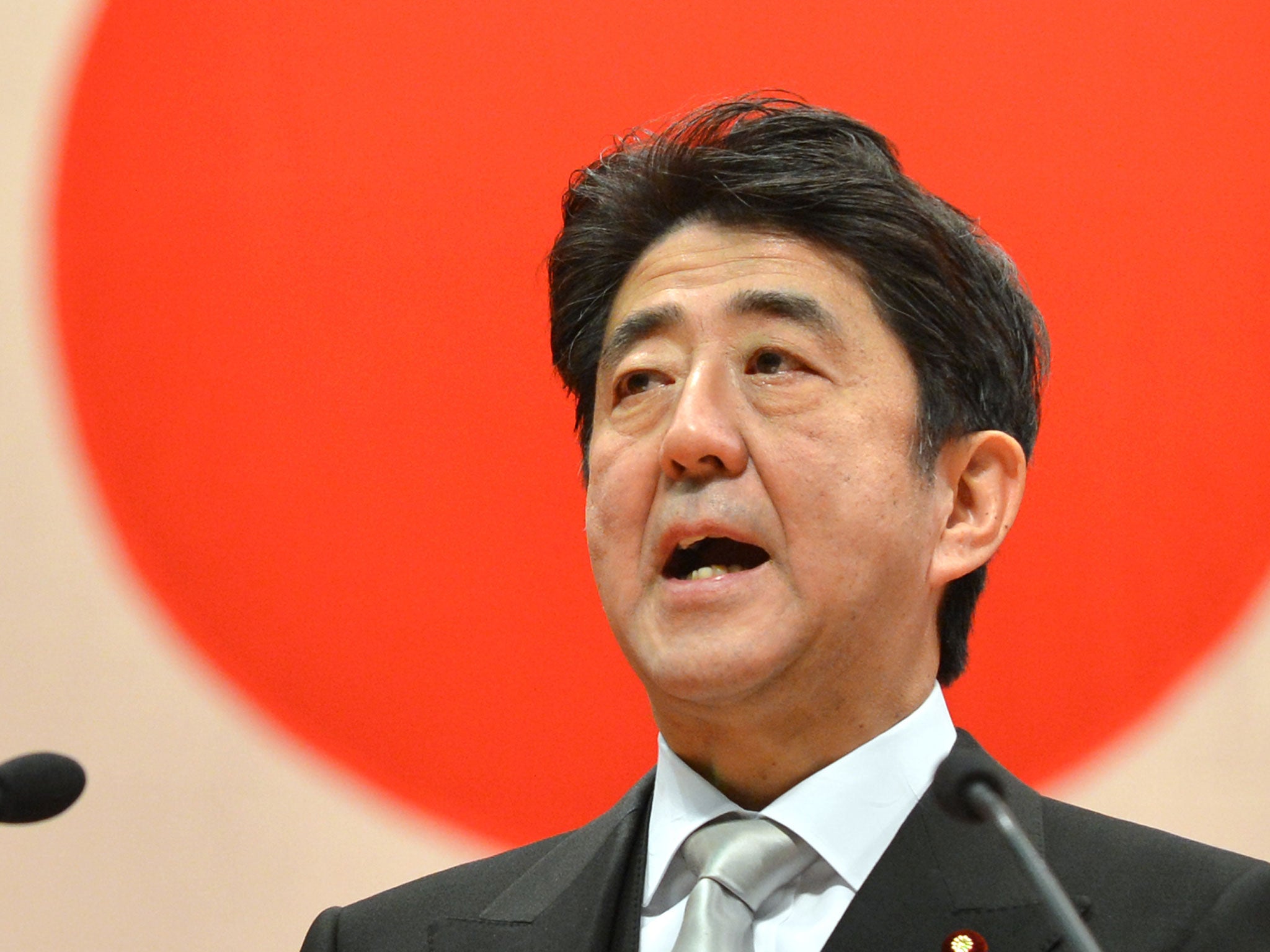Japan lifts sanctions on North Korea as Pyongyang agrees to investigate abduction claims
This will be the first diplomatic agreement made between the two Asian nations since a similar deal broke down in 2008

Japanese Prime Minister Shinzo Abe said his government will lift some of its sanctions on North Korea in response to Pyongyang's decision to create a committee to investigate the fate of at least a dozen Japanese who were abducted by North Korean agents in the 1970s and 1980s.
Abe said he was satisfied the committee has the mandate to carry out a serious investigation into the abductions, though previous deals with the North have fallen through. Japan will continue to abide by UN-sanctions on North Korea over its nuclear and missile programs.
"We have determined that an unprecedented framework has been established, where an organization that can make decisions at a national level ... will be at the forefront of the investigations," Abe said. "However, this is only a start. We are determined to do everything we can, with a renewed effort, toward a comprehensive resolution."
Abe's decision was to be formally approved by his Cabinet on Friday, after the new committee holds its first meeting. The announcement follows a meeting between North Korean and Japanese negotiators in Beijing earlier this week.
North Korea's state media put out its first report of the talks on Thursday shortly after Abe's announcement, saying the North's negotiators briefed their Japanese counterparts on the composition of the committee and how it will work.
"Both sides agreed to take necessary measures in the days ahead, while getting in touch with each other through a diplomatic channel," said the report from the Korean Central News Agency.
After years of denial, North Korea acknowledged in 2002 that its agents had abducted Japanese to train its spies and eventually returned five of them. It said others Japan claimed were abducted had died or never entered the North. Tokyo disputes that and wants an investigation into at least 12 abduction cases.
Even that may not be enough, however.
Private organizations say hundreds of Japanese citizens were abducted, and suspect many may still be living in the North. Abe, who has made resolving the abductions issue one of his top political priorities, has vowed not to relent until all of the abductees are returned or accounted for.
Though Tokyo is as concerned about North Korea's nuclear program as its allies in Washington and Seoul, the abductions issue has for years been an added complication in its relations with the North, creating both strong anger among the Japanese public toward Pyongyang and also strong calls for some sort of agreement to bring any survivors home.
Although Pyongyang made a similar agreement in 2008 to investigate further, that deal fell through and relations between the countries have been virtually frozen since.
In addition to the UN sanctions, Japan unilaterally bans port calls by any North Korean-flagged vessels, all trade with North Korea and the entry into Japan of North Korean citizens. Abe's decision will ease travel restrictions, allow port calls for humanitarian purposes and loosen requirements on reporting money transfers to the North.
Japanese officials stress the eased sanctions will not give a significant economic boost to the North or weaken the impact of international efforts to punish and isolate North Korea for its nuclear weapons development. The North, however, sees even a partial thaw as a small but potentially meaningful boost to its recent efforts at promoting international tourism and, perhaps farther down the road, increased trade.
North Korea also is under sanctions based on U.N. resolutions since 2006 that include an arms-trade ban, a freeze of North Korean assets, a ban on people exchanges and restrictions on education and training.
Japan's Chief Cabinet Secretary Yoshihide Suga said Tokyo wants the abductions investigation to be wrapped up "within one year." In Beijing, North Korea's negotiators said they will conduct the investigation promptly.
Suga said the investigation committee will also look into other issues ranging from the remains of Japanese who may have died in North Korea and the whereabouts of displaced Japanese.
"We were able to open North Korea's door that had been closed for many years, and we are now at a start line after patient negotiations," Suga said. "This is something that has never happened before. We will watch developments very closely."
PA
Join our commenting forum
Join thought-provoking conversations, follow other Independent readers and see their replies
Comments
Bookmark popover
Removed from bookmarks